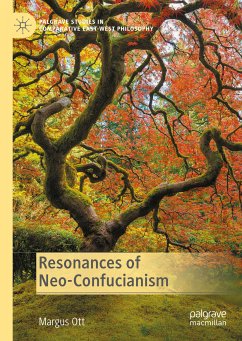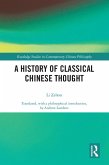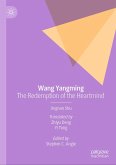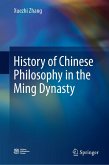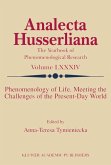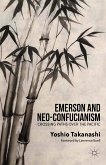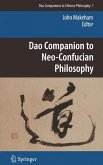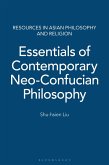This book "resonates" the work of Chinese and Western philosophers, developing ontological ideas that are neither purely Chinese nor Western. In so doing, it argues that Deleuzian idea of "resonance" offers a model for a new way of doing comparative philosophy in which the comparison actualizes the virtual and counter-actualizes the actual in both compared traditions. More particularly, Neo-Confucian thinkers Zhang Zai (1020-1077), Zhu Xi (1130-1200), and Wang Yangming (1472-1529) are resonated with Baruch Spinoza (1632-1677), Arthur Schopenhauer (1788-1860), Husserlian phenomenology, and Gilles Deleuze (1925-1995). The three Chinese thinkers represent three distinct currents of Neo-Confucianism: the school of veins (li) of Zhu Xi, the school of energy (qi) of Zhang Zai, the school of mind (xin) of Wang Yangming. The method of resonance is used to discuss the following topics: dichotomy of veins and energy, temporality and subjectivity, self-cultivation, all-embracing energy, dichotomy of primary ability and primary knowledge.
Margus Ott received a PhD in philosophy at Tallinn University in 2014. He has an extensive publication record in Estonian, including a series of six books of philosophy, a monograph on
Chinese music and divination, and a translation of
Zhuangzi's "Inner Chapters".
Dieser Download kann aus rechtlichen Gründen nur mit Rechnungsadresse in A, B, BG, CY, CZ, D, DK, EW, E, FIN, F, GR, HR, H, IRL, I, LT, L, LR, M, NL, PL, P, R, S, SLO, SK ausgeliefert werden.
Hinweis: Dieser Artikel kann nur an eine deutsche Lieferadresse ausgeliefert werden.

